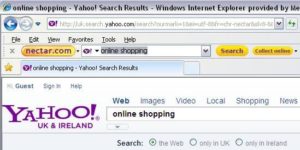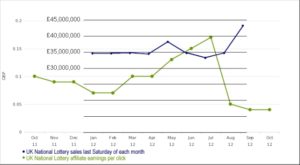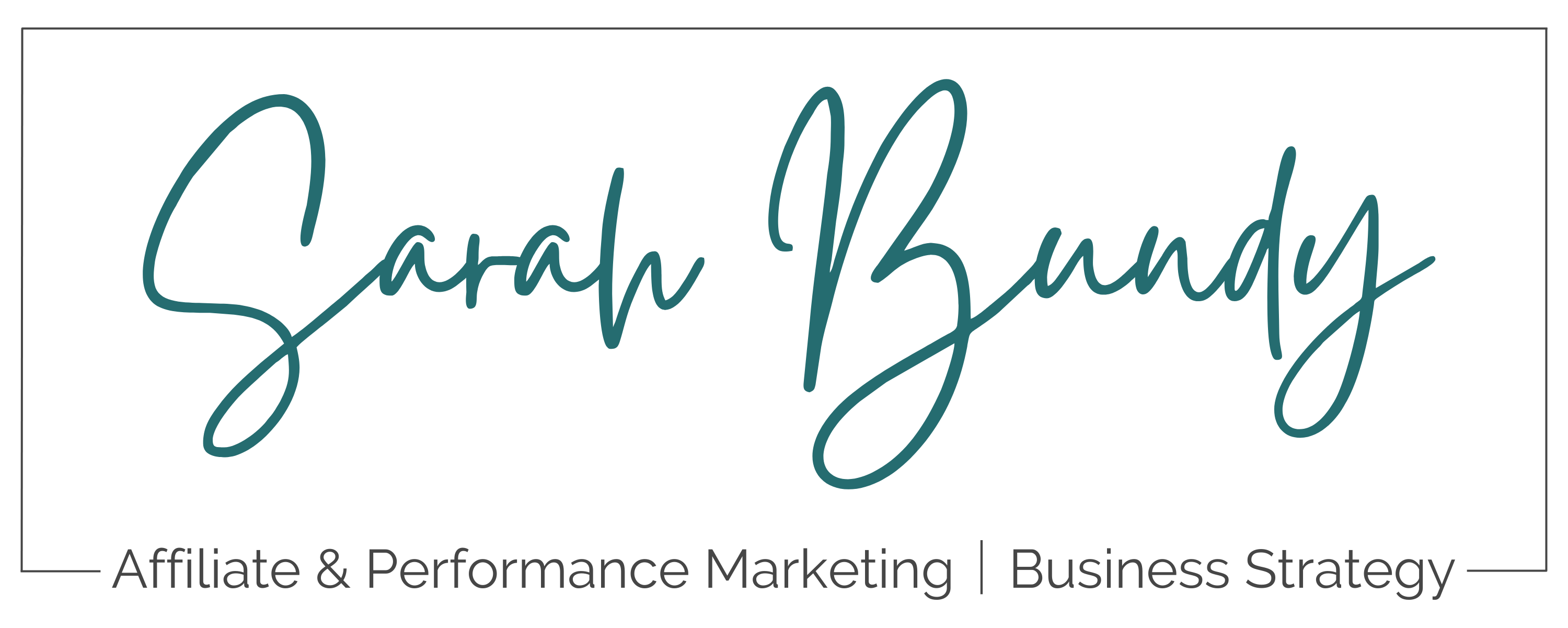Merchants and Affiliates, Beware Cashback & Loyalty Toolbars

An affiliate named John Cheshire based in London, England emailed me with his passionate position on cashback and loyalty toolbars after commenting on my post “Is Affiliate Marketing Dead“. Having been in the industry for over 12 years, he made some interesting points based on his own experience, tests and findings on toolbars and their effect on affiliates and merchants. I felt it was an important topic to share so others could better understand how this might be affecting them.
Following are the thoughts and findings of John which he wrote exclusively for SarahBundy.com.
I refer to the Shopathome (SAH) and Nectar toolbars. Affiliates should be concerned because the toolbars aim to take the commission for sales referred through other sites’ affiliate links. Merchants should be wary of the toolbars because they threaten the relationship with their affiliates and also cause a growing number of direct visits to merchants’ websites to be logged as affiliate sales for the toolbar operators.
The toolbar operators offer incentives to end users to shop via them and toolbars pay for this with usually a very small percentage of the commission they earn by being affiliated with merchants. One merchant I am affiliated with pays commission on free trial signups which give the end user $10 free music download credit. If an end user I send to this merchant has the SAH toolbar installed they will see a message saying they can get $4 cashback by signing up for a free trial through SAH. A free trial, $10 download credit and get paid $4 – sounds too good to be true. I do not know whether SAH cashback is indeed too good to be true but I have read numerous online reviews which suggest the cashback might be extremely difficult and in some cases impossible to collect.
Affiliate cookies typically work on a ‘last come first served’ basis. So if a toolbar pops up a message offering a cashback incentive to ‘click here’ the original referring affiliate becomes replaced by the toolbar operator as the referrer. This should be evident in affiliate platforms as decreasing earnings per click for a merchant because clicks that end up getting captured by a toolbar will register as non earning clicks for the original referring affiliate. The following graph shows UK National Lottery sales on the last Saturday of every month since January 2012 graphed against the earnings per click for UK National Lottery affiliates.

We can see that since July 2012 sales have steadily increased while earnings per click for affiliates has steadily decreased. I have seen a very similar sharp decrease in earnings per click since July 2012 for other merchants who are part of the Nectar toolbar programme.
To be fair, Musicroom who run their own affiliate platform assured me that both Nectar and the original referring affiliate get commission on a sale.
“I’ve just spoken to our technical team and it does indeed look like we pay
out the commission twice. Once to affiliates like yourself and then again
to Nectar who are an affiliate via another platform we use. We could ‘correct’ this so it only gets paid out once but then we’d have uproar from affiliates as the money would be paid to one or the other and fairness comes into it.”
I have to applaud the fairness of the above decision and hope as an affiliate it is true. I do however have to question the business sense behind paying commission twice and ask how long senior management in a company will allow this to continue.
I have confirmed that the SAH toolbar uses cookie stuffing for one merchant I am affiliated with. Anyone who has the SAH toolbar installed will have the sheetmusicplus affiliate cookie automatically stuffed with the affiliate id of SAH when visiting the sheetmusicplus website. I have also confirmed that the cookie gets overwritten when it is stuffed so if I send referrals to sheetmusicplus my affiliate id gets replaced with the SAH id without any interaction from the end user. Does it makes sense for merchants to continue to participate in toolbar programs which employ cookie stuffing? Surely cookie stuffing has long been and should be frowned upon to such an extent that affiliates usually get dropped by merchants if they are found to be using it? Affiliate Window describe cookie stuffing as “This is a technique used to generate fraudulent publisher sales. A cookie or lots of cookies are placed on a visitor’s computer without them knowing. Subsequently when they then make a purchase the publisher is wrongly rewarded the commission.”
Loyalty programme – whose loyalty to whom?. I have hated toolbars and avoided them long before I ever discovered the problems I refer to in this blog. I must admit though that I have installed the Nectar toolbar. For years I have collected Nectar points in reward for my loyalty to my local supermarket around the corner from where I live. Now the Nectar toolbar prompts me to collect points at many websites I have been loyal to for years.
For 21 months I have been buying my lottery tickets online at the UK National Lottery website. The Nectar toolbar now prompts me to collect nectar points when I visit The National Lottery website. Therefore Nectar now becomes the affiliate referrer and earns commission at a website I have been loyal to for 21 months. Nectar gets rewarded for my loyalty to The National Lottery. For 9 years I have been entering the competition at Best of the Best in the UK. The Nectar toolbar now prompts me to collect nectar points when I visit the Best of the Best. Nectar earns up to 45% commission by becoming the affiliate referrer and gets rewarded for my loyalty to Best of the Best.
Nectar has over 500 online retailers and over 18 million cardholders with over £1.5bn of rewards given since launch in 2002. I can understand how using my Nectar card at my local shop has been a loyalty programme but I do not see how a Nectar eshops programme which hopes to enrol the majority if not all UK online retailers can be thought of as a loyalty programme. It is now said that more than 50% of UK online shopping is through Nectar. When a scheme gets to this size there is very strong pressure for merchants to join but perhaps the pressure is more due to the fear of being excluded rather than the benefits of inclusion. Are we not seeing a case of “your competitors have joined so you will lose sales if you do not join” rather than “we can bring you extra sales”?. Is it just me or did I just describe something similar to a protection racket?.
What is the position of the affiliate platforms such as Commission Junction, Linkshare and Affiliate Window? I very much doubt that these platforms have any sympathy for affiliates who lose commission due to the toolbars. Toolbars attempt to replace themselves as the referring affiliate but as long as a sale is an affiliate sale the affiliate platform gets paid for tracking the transaction. Also, the toolbars try to turn direct visits to merchants’ websites in to affiliate sales and this is surely an ideal situation for affiliate platforms – ie, direct visits to a merchant website become affiliate sales in their network, thus increasing the transaction turnover of the affiliate platforms.
Linkshare state: “We understand that you have concerns regarding the toolbars used by other publishers and related policies. Please note that no hijacking takes place here. The consumers opt to download/use the toolbars; the toolbars capture referral credit for the toolbar publisher, as dictated by the actions of the consumer. Hence, the use of toolbars does not violate the policies.”
It seems it is possible for a merchant to be part of the Nectar programme but opt out of their toolbar programme. Opting out of the toolbar surely makes sense for a merchant and for me it is no surprise that the Amazon UK website does not cause any popups from the Nectar toolbar. Amazon affiliates still risk a reduction in commission though due to consumers becoming increasingly aware that Nectar points are available on Amazon purchases by visiting the Nectar website first.
I was invited by Sarah Bundy to write this blog when I posted a reply to her blog “Is Affiliate Marketing Dead?”. I hope it is not dead but I do see cashback/loyalty toolbars as the most serious threat we have ever seen to affiliate marketing. An increase of toolbar installs will surely mean;
* A continued decrease in affiliate earnings per click.
* Affiliates might simply decide to remove links that no longer generate income.
* Merchants lose visitors to their websites that used to come from affiliate links on many websites.
* An increase of direct visits to merchant websites become affiliate sales with commission paid to the toolbar.
*If affiliates can find merchants not participating in the toolbars they will start to promote those merchants instead.
In conclusion, these toolbars might not mean that affiliate marketing is dead but I do think it might be critically ill.
——-
John is the former Directing Partner of a London based computer company that was sole UK/Ireland distributor for a USA made high profile product in the Sun Microsystems marketplace. He has been an affiliate since 2000 and designs websites, helps people market them and manages vocalist.org, an international singers’ discussion site with free advertising for singers/singing teachers and such.
